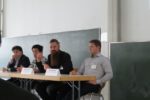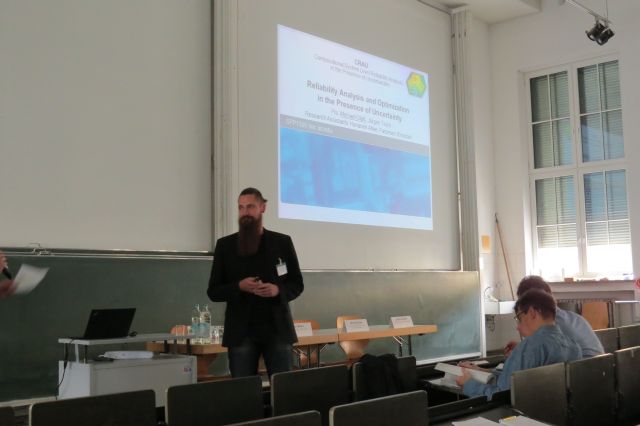30.06.2016 -01.07.2016 „The Munich Workshop on Design Technology Coupling (DTC)“ fand an der TU München statt.
Organisiert wurde er von Dr. Helmut Graeb (TU München) und Dr. Sani Nassif (Radyalis) in Kooperation mit dem SFB Transregio 89 „Invasive Computing“ und dem SPP 1500 „Dependable Embedded Systems“.
Der Workshop bot sowohl interessante Beiträge aus der Industrie, wie z. B. von der Infineon AG, Bosch GmbH und Volkswagen AG, als auch aus zwei von der DFG geförderten Forschungsprogrammen.


In one session, Prof. Teich gave a short introduction and overview of the topic and benefits of invasive multi-core computing for achieving timing predictability, fault tolerance and security for individual application programs. This talk was followed by a talk on providing fault tolerance and power management through invasive computing, „Providing Fault Tolerance Through Invasive Computing“ by Dr. Vahid Lari (FAU) and „On-Chip Diagnosis of Multicore Platforms for Power Management“ by Mark Sagi (TUM). In another session, Prof. Glaß (FAU) presented the project CRAU as part of his talk „Compositional Reliability Analysis in the Presence of Uncertainty“.
Furthermore, on 1st of July, the following demonstrations have been presented: An invasive object tracking application that was simulated and visualized in real-time using C2’s simulator InvadeSIM, and the code generation for Safe(r) loop computations using the C3’s compilation flows.

